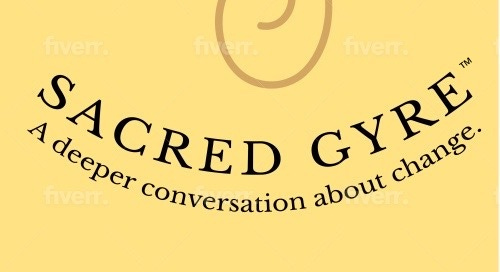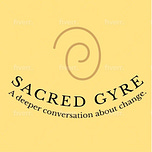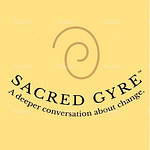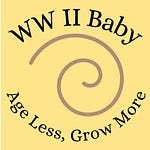Today, I invite you to a reading of poems I selected from Splitting Open the World, By Carolyn Martin. I do this, of course, with her permission.
It was published in March 2025 by The Poetry Box a publisher working " To bring the joy of poetry to everyone," as they say in their mission statement.
If you listen to my reading until the end, I will tell you how you can purchase a copy of this book as a discount.
Here are the poems:
The Book To Ask Questions Of
(from an ad for the encyclopedia Britannica)
The salesman spread them on the Formica tabletop.
Volumes in reddish brown. Opaque paper. One-inch thick.
Here, he said--conjuring dreams of universities--
the sum of human knowledge at your fingertips.
Every fact you need to know about everything.
The fact is we couldn't afford one book, thick or thin.
My mother cooked and cleaned between assembly-line shifts.
My father blew out his back. Paint barrels did him in.
A favorite aunt strung Venetian blinds on a factory floor.
Another scrubbed rich people's toilets and sinks.
One uncle painted houses by day, spent nights in oblivion.
Another drove a truck collecting junk for charity.
Too young in the ways of their world, I never asked
about the brutal drunks who fathered them
or how they skimped to take us to the Jersey Shore
or why they cussed and clashed over everything
except what kept them family.
That night, after the table cleared of dreams,
I summed up answers I had no questions for:
the catechism's creed, the straightest of narrow rules,
the narratives sanctified in bibles and history books.
I'd been schooled there is no wiggle room between
right and wrong, no versions beyond the literal.
That's how it was: Sunday church, chores at home,
answers spouted up and down rigid rows
where nuns kept us in line and taught us well.
Decades dissolved before I learned beliefs
should not terrorize and family is more
than arguments; before I understood
what no salesman would admit:
in this wobbly universe, truths strain, turn, twist,
to revise themselves before ink soaks in.
My Mother's Scars
The photograph: a two-year-old,
vacant eyes, wispy hair, white dress,
leaning toward the camera from a kitchen chair.
Blackened fingers--fragile and forlorn--
resting on a homemade doll.
The lie: a pot of boiling candy
cooling on the front porch step.
The truth: a broiling backyard still
and a toddler's curiosity.
The aftermath: Twelve surgeries.
One pinkie stub. One finger bent.
One father's drunken rage. One mother's regret.
The woman I knew never let those scars
stop her from doing what needed to be done:
scrubbing clothes in a basement sink,
knitting scarves my brothers wore,
storming into rage when I missed dust
beneath beds or spots on the kitchen floor.
Singed and afraid, I'd cringe at her voice
and the scowls that wiped the beauty from her face.
I'd hide in the neighbor's chicken coop
or climb their cherry tree or grab my bike
to ride and ride and ride anywhere.
Nine decades gone and still
I can't comprehend how scars served
her well. She fiercely soothed them
while I---I couldn't bear to look.
Over The Telephone
What do you want from me? she asks each week.
At 94 she's ready and can't conceive
why heaven doesn't want her yet. I throw
her insistent question back: Do you know
what you want from yourself? My words stop her
in her wobbly tracks. The question infers
there's something deeper to want than a pair
of Easy Spirit shoes or a tooth repair.
And that bladder surgery? Why bother?
her stance, when time's on the run. My mother
asks again, What do you want from me?
I almost dare, An apology
for childhood taunts you didn't save me from.
But her recall is lost. I hold my tongue.
Theology
-for Charlie
My uncle never mentioned God
unless something needed to be damned
like cops raiding Mayer's bar,
chickens raining poop on the roof,
or old man Monik spitting on his porch.
Then he'd call on godly wrath
to raise the ante on his own
and spout off expletives worthy
of a handyman smashing thumbs
on two-by-four red oak.
Friday nights he'd trek a baseball bat
to the darker side of town,
puffing out his chest to hide
his homegrown ignorance.
Blood never rattled him.
Saturdays drank him into oblivion;
Sundays lugged him out of bed.
He threw his church clothes on
and blessed the priest who missed
the coins nicked from the offering.
A bona fide perfectionist,
he created his own trinity--
painter/builder/paper hanger--
adored by blue collar folks
who couldn't pay for the costly expertise.
No children of his own,
he crowned me princess of his heart,
my brothers princes of his home.
He loaned and fixed and ran to help.
He never let us down.
He cheated war out of his life,
then lost it piece by piece.
When his liver failed in the end,
God didn't have the heart
to give him a damn.
My Mother Is Dead
1924-2022
Afterwards when relief was still
relief and regret for words
I never said pushed grief aside,
I forgot to forget her red-raw hands
unpinning frozen shirts
clotheslined across the yard.
Her drudgery on factory floors to pay
bills beyond my father's salary.
The homemade dress she made me wear
when I was born for jeans.
Her rage at dust on bottom shelves,
baseboards, and crevices
that even God couldn't see.
Later, her Saturday calls
from New Jersy to Oregon:
twelve minutes, rarely more.
Her scrambling for post-stroke words
for worlds outside her nursing home:
for clouds slipping through maple trees,
for critters strolling across the lawn,
for strangers prattling on the patio.
Her question every week--urgent,
confused--Why am I still here?
Why don't they want me yet?
That is, until still became want
and seconds between breaths dissolved.
Now hidden beneath the silence
of her death, grief--evasive,
unpredictable--calls for love and waits.
Sermon
Sunday mass and the priest explains,
The Good Lord liked simplicity.
Why struggle with ten, he said,
when you need to practice only two:
love God and your neighbor as yourself.
The others? A four-letter word will do.
I slink down in my seat, guilty and ashamed.
I could buy his take if it weren't for
the hard-to-love neighbor next door.
She hates my guts--but won't say why--
ignores my pleas to chat, and squawks
my faults around our cul-de-sac.
She must have heard me swear
when skunks dumped my plastic pots
and raccoons dug up my lawn.
Or she takes offense at the peanut shells
I throw into her flower beds. They're hers,
I rationalize. Compliments of the feeder
squirrels adore hanging on her fence.
Vernal sins, I bet, she adds up.
Anyway, I'll ponder the words, maybe
find forgiveness is another word for love
and take guilt and shame for a stroll.
Whatever shows up, I want to reclaim one
ancient rule: keep holy the Sabbath Day.
Loving others, much less myself, fatigues.
I need to rest at least once a week.
Conversation With My 6-Year-Old Ethiopian Neighbor
What are you doing? her voice flashes across the front yard.
Cutting back my daffodils.
Why? her favorite word.
I'm tempted to quip, Because they're dead,
but hold my tongue and fashion a poetic reply.
Because their season of beauty is over and they need their rest.
Why? I could count on it.
Four-feet of jiggly energy, beaded braids swinging
with each word, pink gums announcing
an absence that a future's bound to fill.
Because Mother Nature likes to spread her colors around.
Why? I am ready this time.
Because if flowers came all at once, we'd be overwhelmed.
I expect she wants to know
what overwhelmed means, but she picks up
my deadheaded pile and holds it to her face
like a botanist awed by first time discovery.
Overwhelmed, she echoes with a toothless grin,
fanning yellows and green on the ground.
Her wave good-bye leaves the awe to me.
Promises
-to Nancy
While you were in bed losing your cancer war,
I was losing my voice to the mold in your garage.
My promise: clear out the throw rugs, table lamps.
knock-off bags, garden tools, boxes of supplies
from every Costco sale, and more stuff
in your hoarder’s stash then imagination could hold.
All this cleaning out--focused, frantic, silent--
before my raspy cords would find themselves
and Hospice would drive you to your final home.
Today your ashes rest in a wooden box
in my living room. Every season or so,
I sit in my mauve armchair and remind you
of what you promised me: a condo
on a Maui beach where turtle, tangs,
and butterflies scavenge graying coral reefs.
You promised we’d sit beneath pink plumeria
drinking in the sun singing on the horizon’s edge,
bemoaning the hapless Pac Man troop
who failed to trap your unruly cells.
You promised we'd reminisce about how
you lived to find the best of deals and how
I found sufficiency in the midst of the silences.
Burying Our Mother's Ashes
-Mt. Calvary Cemetery, New Jersey, 2022
A near-perfect October day
and splashes of autumned leaves
soften rows of crosses/angels/headstones
carved with names someone loved.
Paperwork works its way
through the groundskeeper's hands
while we take turns holding her remains.
Heavier than I thought,
I smile at two brothers--frowns holding
their feelings in--and pass the box around.
It's the closest my mother and I
have ever been. We never hugged
or kissed or shared I love you's
until my adult green eyes
challenged her aging blue.
But what does it matter now--
this mother-daughter thing--
on the day we choke out our good-byes
and lower her ashes to rest with parents,
sister, and husband/her best friend.
We find our cars on the cemetery's drive
and plan to share history at a cafe.
It doesn't matter that the family plot
is full and it may take months to turn
relief into regret into grief.
How I Want To Be Comforted After My Mother's Death
Don't say, I'm sorry for your loss
At 98, she was ready and did it her way.
Don't attempt to advise, save, or fix.
I'll deal with these my way.
The fact is I'm relieved I wasn't there
when morphine floated her around the room.
Or when she said my father/her best friend
arrived bedside to take her home.
Or when my brother, counting seconds
between breathes, played witness to the end.
Meanwhile, I was pacing around the house,
waiting for the voice--tearful, free--She's gone.
What should you say? For now, two words
suffice: I'm here--and leave it at that.
Lingering
-Crystal Springs Rhododendron Garden, Portland, Oregon
I don't remember why I paused.
Might have been to catch my breath
on the uphill path or to grab
a last panoramic shot of rhodies
and azaleas astonishing in whites/
pinks/purples/yellows/blues.
I had five goslings on my mind--
golden innocence paddling
across the spring-fed lake--
not to mention waterfalls
tucked with curated randomness
around the garden's edge.
Might be why I didn't see
the child skipping up the slope
or the mother unscrewing the mason jar.
Only this: a stunned monarch--
shocked by how freedom felt--
spreading wings--royally--
on an azalea's violent blooms.
As if grateful for the sun
and my awe-filled stare,
it posed for two dozen clicks,
waiting for the future to appear.
It approved, as it folded up
its wings, the art of standing still.
To My Mother On Her First Anniversary
Every week since you died, I've caught
myself gathering news for our Saturday ritual.
You, in your New Jersey nursing home
trying to remember how to answer the phone;
me, roaming our Oregon yard, inviting
you piece by piece into my private life.
How predictable each call.
I'd only dramatize an opening line before
you'd interrupt with a performance of your own:
how you woke to find a man sleeping on your couch,
how convulsion hurled you out of your bed,
how you guided your way through Italy/
Egypt/Greece but lost the words
for stamp/birthday card/address.
In retrospect, my reports were minor affairs:
a trip to the coast, a new book of poems,
the harsh September rains that snapped
our crape myrtle tree. Yours--like tracking
rowdy clouds through flowering chestnuts
kissing golden oak--sometimes surprised with poetry.
But hear me out this time and don't interrupt.
Words and time are what I need.
Someday--when I've grown closer to myself
and cycles of shame and rage dissipate--
someday, I suspect, I'll rewrite the story
of your life with unscarred love and awe.
And if truth splits open wide enough,
I'll use your name with reverence
in odes not elegies.
Addendum: Progress
At eighteen, committed to veil and vows
and striving to follow rules perfectly.
Poverty and obedience? A breeze.
At thirty-six chastity tore down the wall.
Falling in love: an unexpected novelty.
Forty-two and I wish I were a drunk
sitting in a basement room with flannel shirts
and business suits. I'd pull out my ace:
turn on the gas, unhinge the oven door, and wait.
Crossed arms would nod nonjudgmentally.
On days when loneliness dug so deep,
my fifty-plus grabbed car keys to find
a traffic jam. I rolled my window down,
waited to catch an eye. We'd commiserate
with sloggers easing home endlessly.
A retired sixty-two, I cleared out navy blue suits,
black pumps, and every business script
I banked my keynotes on. Now's the time
to wallow in the truth lurking in rhythms,
images and burdensome memory.
Prepped to glide through my ninth decade, I'm free to play
in the rampant bounty of gardens and poetry.
No debt. Freezer full. Questioning certitudes,
countering with a sturdy voice. Free to stand
outside myself and revel in ecstasy.
I hope you enjoyed Carolyn's poems and my reading of them.
I was affected by them for a couple of reasons. They bring out a beautiful picture of her life and her life-long emergence as a human being. And there are some ways in which her story, though very different in its particulars, resonates with how my life story feels to me.
While preparing for this episode, I thought it might be interesting to explore what the effect of this reading might be on her. After all, in a way my reading of her poems is both my attempt to bring her meaning alive and, no matter what my intentions may be, interweaves my personal reactions as well. Carolyn and I will record a conversation about her reaction to my reading of her poetry, which I will publish as a separate episode.
As I said in the beginning, If anyone would like a copy of Splitting Open the World, please email Carolyn at portlandpoet@gmail.com. Mention my name, Emily Newberry, and she will be delighted to give you a discount on the price of her book, with free Shipping and Handling.
Thank you for listening.












Share this post